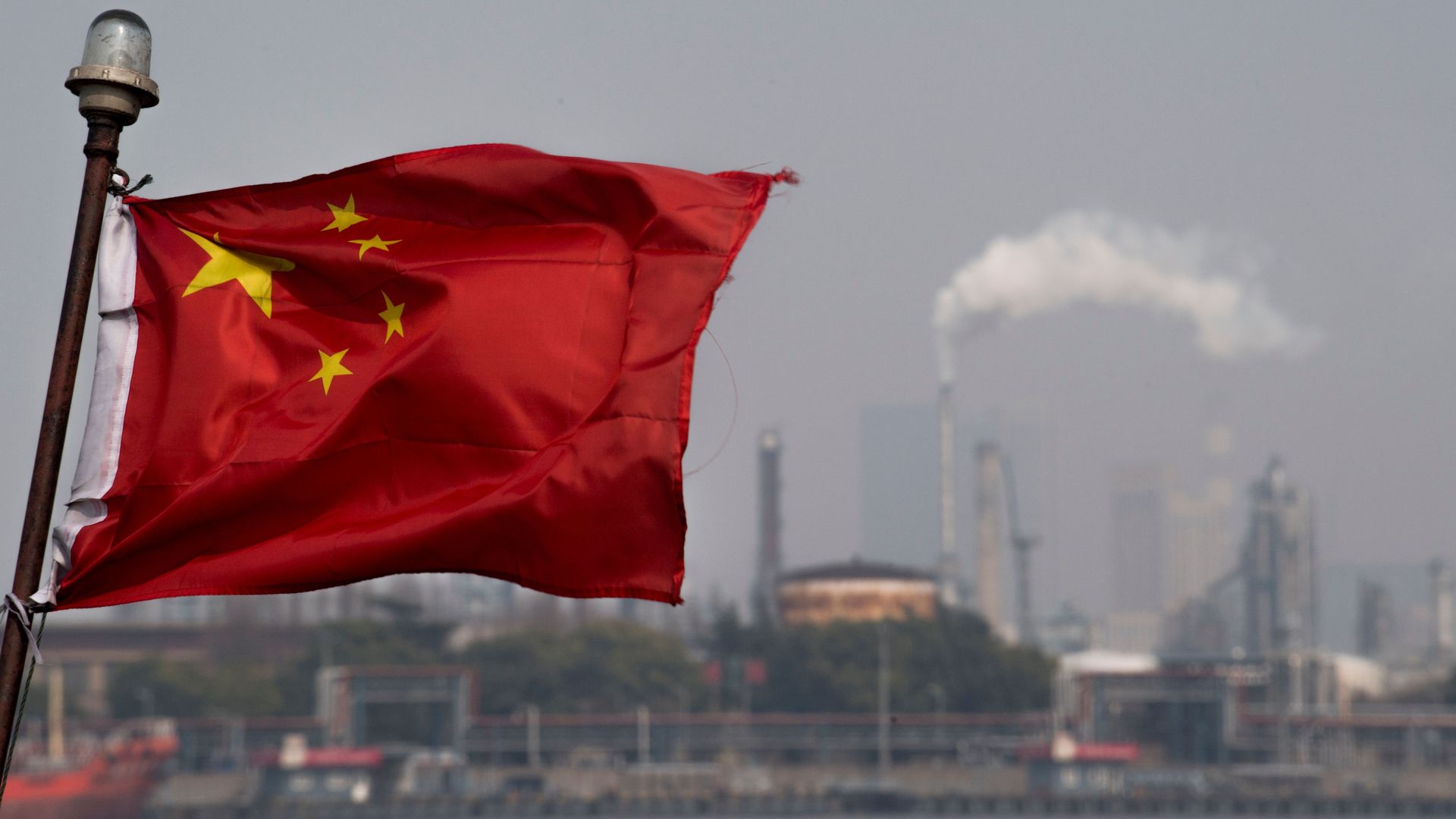The U.S.-China trade battle bleeds into oil
Add Axios as your preferred source to
see more of our stories on Google.

A Chinese flag outside an oil refinery in Shanghai. Photo: Johannes Eisele/AFP/Getty Images
The U.S.-China trade war is no longer sparing some major energy equipment and commodities, including crude oil, while U.S. natural gas exports still remain outside the struggle.
The big picture: In recent days, analysts have been grappling with a few major questions when it comes to oil, including: how specific trade flows will be affected and whether the wider economic fallout from the U.S.-China fight will hinder worldwide oil demand.
- Crude exports to China were about 380,000 barrels per day in March, according to U.S. federal data.
ICYMI: Late Friday, Chinese officials floated lists of U.S. products that would be hit with tariffs in response to the White House's announcement of $50 billion in planned tariffs against Chinese goods.
- The long list includes coal and crude oil, a product that energy-hungry China has been importing in growing volumes from the U.S.
Be smart: A big thing to watch is whether the crude and petroleum product penalties ultimately come to pass. Both countries are proposing two waves of tariffs, and crude is not on the first list of products subject to penalties that starts in early July.
"Taking the two-step retaliation and including crude oil on the second list may indicate how the Chinese are not particularly eager to impose the tariff on U.S. crude oil, and are wishing there may arise some breakthrough in trade talks that would thwart a need for them to carry out the second step."— Jane Nakano of the Center for Strategic and International Studies tells Axios
- ClearView Energy Partners said in a note: "The U.S. and China could potentially retract their first-wave proposals. Or, the first-wave proposals could go into force without further action towards the second-wave proposals, largely sparing most fossil energy flows."
Go deeper: This S&P Global Platts story notes that while there are plenty of buyers for U.S. crude, the Chinese action could have an impact. Jason Bordoff of Columbia University's Center on Global Energy Policy notes that it could lower the price of U.S. oil on global markets, and even have a broader impact on the price of oil.
- "[T]he rising threat of a trade war is a risk to global economic growth rates, which could lower global crude demand growth by several hundred thousand barrels a day and thus depress prices," he said.
- Yet the scope of those effects remains uncertain in these early days.
One possible future: In a note Monday, Goldman Sachs predicted that the tariffs would result in some redirected U.S. crude flows, but as proposed probably won't harm global demand much — perhaps 20,000 to 40,000 barrels per day, which is very little in a nearly 100 million barrels per day global market.
- Yes, but: "Key will be how the situation evolves with both potential for de-escalation or even larger tariffs, which would threaten oil demand growth more materially," their analysts said.
Why LNG is spared: The liquefied natural gas sector is another place where China could hit the U.S. But they have strong reasons not to go there, Wood Mackenzie said in a note Monday morning.
- "Firstly, LNG demand is growing rapidly in China. Secondly, the US will be the key source of incremental supply growth in 2018 and 2019," said Nicholas Browne, a senior gas analyst with the consultancy, in a short note Monday.
- U.S. LNG provided 4% of Chinese supply past year, but is poised to provide 30% of their incremental supply growth this year and 45% in 2019, he said.
